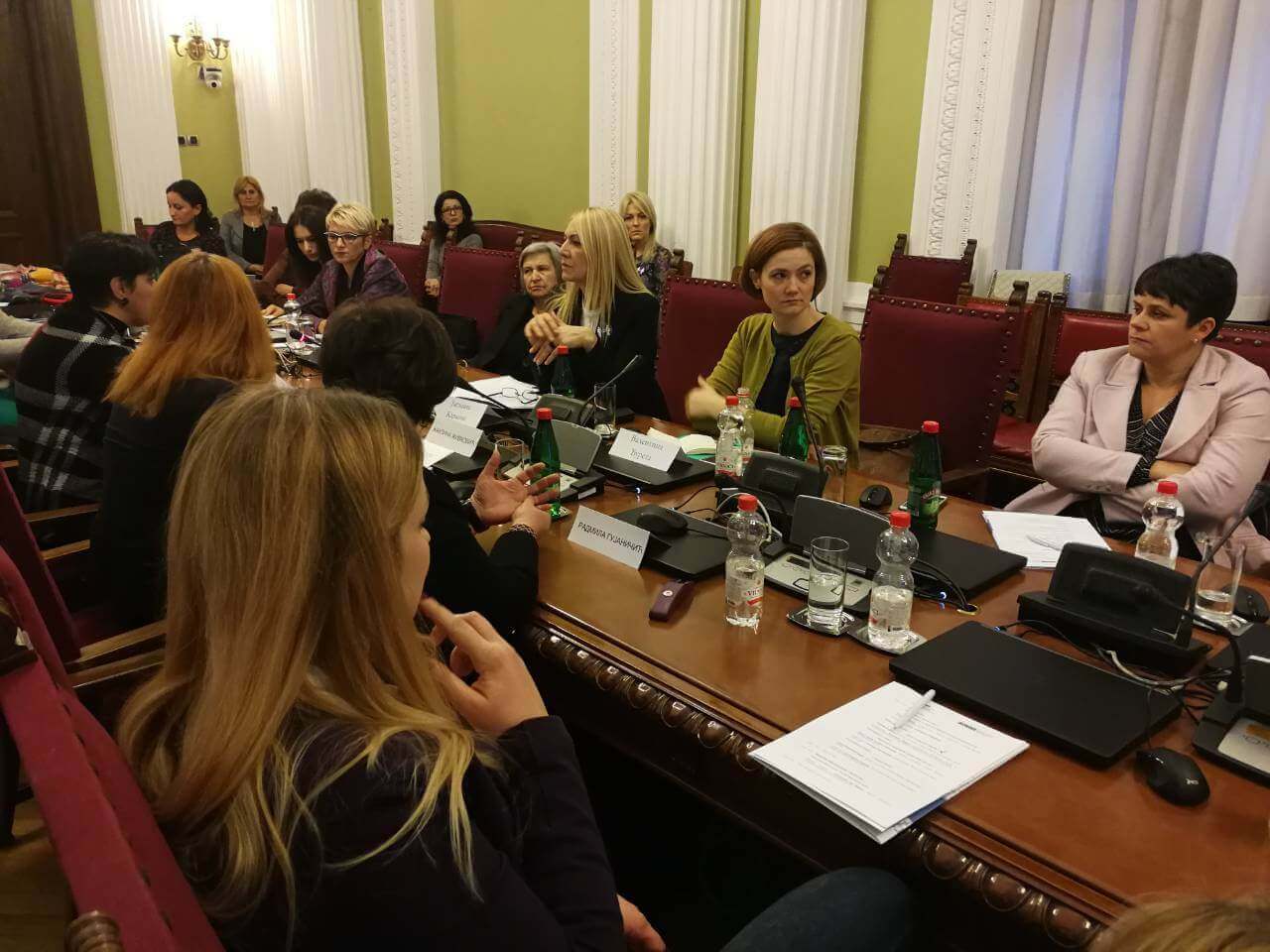The Working Group meeting for Chapter 15 of the National Convention on the European Union “Towards sustainable energy: with the civil and industrial sector of Serbia” was held at the Green Room of the National Assembly on Monday, 26 November. The event was organized in co-organization of the Association for Sustainable Development (ASOR) and the Belgrade Fund for Political Excellence (BFPE).
During the introduction, Bogdan Urošević from Belgrade Fund for Political Excellence addressed present members of the Working group and other participants by outlining the past work of the Working group, singling out the cooperation with the Parliament and the Parliamentary Forum for Energy Policy of Serbia; joint working sessions with Working group for chapter 27 and cooperation on giving inputs for strategic national documents.
Aleksandar Kovačević, from the Oxford Institute for Energy Studies, presented a draft of monitoring report for the Chapter 15 in Serbia. On this occasion, he emphasized that it can be expected that issues of implementation of the Energy Community Treaty and the impact of the energy sector on the environment and health come into the focus of the chapter dealing with human rights and the rule of law and produce a critical impact on the further process of EU accession with additional fiscal risks arising from slowing or stopping this process.
Maja Turković, representative of ASOR, presented the goals and results of the project “Mobilization and involvement of interested public in the process of creating a sustainable energy policy in Serbia”.
Milka Mumović, representative of the Energy Community, presented the Report on the implementation of the acquis for 2018 in the context of sustainable development. On this occasion, she presented a percentage of the current situation of energy development in the country. She also pointed out that energy requires future planning; therefore it is necessary to consider the energy strictly as sustainable and work on raising the level of investments in the field of sustainable energy. She also stressed that, with the involvement of the public, long-term integrated planning is one of the most important steps.
Varvara Aleksić, energy and environmental law expert pointed on the guidelines and challenges of transposing European legislation in the energy field in Serbia, where she made a review on the state of the legal framework and stressed that there is room for adjustment. She emphasized that horizontal and vertical harmonization of legislation and the evaluation of sustainable development should become a regular process.
The session was concluded with a discussion where the Working group pointed to an increased uncertainty in the energy market. This includes the risks arising from the readiness of international institutions and national government administrations in the region to fulfill obligations (material obligations in particular) within the foreseen deadlines, the opportunity to use existing infrastructure, build new appropriate infrastructure, financial and political risks. The discussion has underlined the responsibility of the actors in the state administration, commercial, regulatory and professional institutions for the timely execution of obligations.













